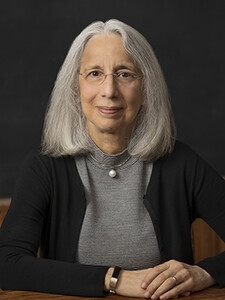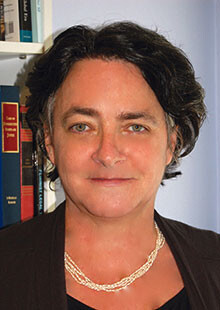Anne L. Alstott
Jacquin D. Bierman Professor in Taxation
Anne Alstott is the Jacquin D. Bierman Professor in Taxation at Yale Law School. An expert in taxation and social policy, she was named a professor at Yale Law School in 1997 and originally named the Jacquin D. Bierman Professor of Taxation in 2004. She served as deputy dean in 2002 and 2004 and has won the Yale Law Women teaching award three times. From 2008 to 2011, she was the Manley O. Hudson Professor of Law at Harvard Law School. Prior to coming to Yale, she taught at Columbia Law and before that, served as an attorney-advisor in the Treasury Department’s Office of Tax Legislative Counsel. Her books include No Exit: What Parents Owe Children and What Society Owes Parents (Oxford University Press, 2004) and The Stakeholder Society (with Bruce Ackerman, Yale University Press, 1999). She holds an A.B., summa cum laude, in economics from Georgetown University and a J.D. from Yale Law School.
Full Biography
Personal Website
Ian Ayres
Deputy Dean and William K. Townsend Professor of Law
Ian Ayres '86 is a lawyer and an economist. He is Deputy Dean and the William K. Townsend Professor at Yale Law School and a Professor at Yale’s School of Management. Professor Ayres has been a columnist for Forbes magazine, a commentator on public radio’s Marketplace, and a contributor to the New York Times’ Freakonomics Blog. His research has been featured on PrimeTime Live, Oprah and Good Morning America and in Time and Vogue magazines. Ayres is a co-founder of stickK.com, a web site that helps you stick to your goals. In 2020, Harvard University Press published Ayres’s twelfth book, “Disarmed By Choice: Liberating Individuals to Reduce Gun Violence” (with Fredrick Vars). Ian has also published over 100 articles on a wide range of topics including several empirical studies. In 2006, he was elected to the American Academy of Arts and Sciences. His book with Greg Klass, Insincere Promises: The Law of Misrepresented Intent, won the 2006 Scribes book award “for the best work of legal scholarship published during the previous year.” Professor Ayres has been ranked as one of the most prolific and most-cited law professors of his generation. He was born and raised in Kansas City, Missouri, received his B.A. (majoring in Russian studies and economics) and J.D. from Yale and his Ph.D in economics from M.I.T.
Full Biography
Lori Bruce
Associate Director, Interdisciplinary Center for Bioethics, Yale University

Lori's work centers on ethical policymaking and ethical policy analysis. She has influenced law and authored policy recommendations on scores of issues including ethics of psychedelics, medical aid in dying, trauma-informed policymaking, pediatric organ donation after cardiac death, infant safe haven and “baby box” laws, explicit consent for pelvic and prostate exams, palliative sedation, and doctor/patient social media communications. She has consulted for the President Obama’s Commission on Bioethics on community views relating to the Guatemalan syphilis research experiments and lectures nationally and internationally including such places as Walter Reed National Military Medical Center, US Coast Guard Academy, Monash University in Australia, the Centre for Values, Ethics and Law in Medicine at the University of Sydney, the Centre for Faith, Ethics and Society at University of Notre Dame Australia, and Harvard University. Lori is Co-Director of Yale-New Haven Hospital’s Adult Ethics Committee, serves on the Pediatric Ethics Committee, and is a member of Yale’s IRBs, reviewing medical research on AI, behavioral studies, and large-scale tissue and data repositories. She has also served on bioethics committees at Harvard, including the Cambridge Health Alliance and the innovative Community Ethics Committee and is the ethics consultant to Yale’s Gender Clinic.
Full Biography
Zack Cooper
Associate Professor of Public Health and Economics
Zack Cooper is an Associate Professor of Health Policy and of Economics at Yale University. He is also a Resident Fellow at the school’s Institution for Social and Policy Studies (ISPS), where he directs the ISPS Health Center. Professor Cooper’s work is focused on using big data analysis and economic research to improve health care policy. There are three strands to his work. The first is examining the growth and variation in health care spending in the United States. The second is analyzing how competition in hospital and insurance markets impacts health care providers’ quality, prices, and productivity. The third is examining how information and incentives influence how individuals choose doctors and hospitals and spend on health care services. Professor Cooper received his undergraduate degree from the University of Chicago and his Ph.D. from the London School of Economics where re remains a Faculty Associate at the school’s Centre for Economic Performance.
Full Biography
Saul Cornell
Paul and Diane Guenther Chair in American History at Fordham University

Saul Cornell is Paul and Diane Guenther Chair in American History at Fordham University. Professor Cornell is a leading authority on early American constitutional history and has written extensively on the Second Amendment, the history of gun regulation, originalism, and the uses of history in constitutional law. His articles have appeared in The Journal of American History, The William and Mary Quarterly, The Law and History Review, The American Journal of Legal History, The Yale Law Journal, and The Yale Journal of Law and the Humanities and dozens of other law reviews and journals. His work has been widely cited by state and federal courts and the U.S. Supreme court. He authored the chapter on the “Right to Bear Arms” in the Oxford Handbook of the U.S. Constitution and co-authored the chapter on the Federalist and Jeffersonian era in the Cambridge History of Law in America. He is the author of two prize winning books in early American history, The Other Founders: Anti-Federalism and the Dissenting Tradition in America, A Well Regulated Militia: The Founding Fathers and the Origins of Gun Control in America. His popular writings on the Constitution have appeared in Slate, The New York Times, The Washington Post, The Atlantic, The New Republic.
Janet Currie
Professor of Economics
Janet Currie is a Professor of Economics at Yale University and the co-director of the Program on Families and Children at the National Bureau of Economic Research. Currie is a pioneer in the economic analysis of child development. Her current research focuses on socioeconomic differences in health, environmental threats to health, child mental health, and the long-run impact of child health. She has presented her work at universities around the world and in venues ranging from the White House to the European Investment Bank. She holds honorary degrees from the University of Lyon, the University of Zurich, and the Università della Svizzera Italiana and is a member of the U.S. National Academy of Sciences, the National Academy of Medicine, the American Academy of Art and Sciences, and the British Academy. She was the 2024 President of the American Economic Association. She is a distinguished CES Fellow, and a fellow of the Econometric Society, the Society of Labor Economists, and the American Academy of Political and Social Science. She was chosen as a NOMIS Distinguished Scientist in 2019, won the Klaus J. Jacobs Research Prize in 2023, and was named a Clarivate Citation Laureate in 2024. In 2015, she was named one of the top 10 women in Economics by the World Economic Forum. Currie has served on the Board of Reviewing Editors of Science, as the Editor of the Journal of Economic Literature, and on the editorial boards of many other journals.
Full Biography
Randi Hutter Epstein
Writer in Residence for the Program for Humanities in Medicine at Yale Medical School
Randi Hutter Epstein is a lecturer in the English Department at Yale College and a Writer in Residence for the Program for Humanities in Medicine at Yale Medical School. She teaches an undergraduate seminar, Writing About Medicine & Public Health. Epstein is also an adjunct professor at Columbia University School of Journalism. She holds a bachelor’s degree from the University of Pennsylvania, where she majored in History & Sociology of Science, a Masters of Science degree from Columbia University School of Journalism, a Masters in Public Health degree from the Mailman School of Public Health, Columbia University, and a Medical Degree from Yale University School of Medicine. Epstein has lectured on and written articles about the history of medicine as well current issues in science and health care. She is particularly interested in the intersections of medicine and society—how cultural ideas about health impact doctor-patient communication and shape medical progress. Epstein is the author of two books: Get Me Out: A History of Childbirth from the Garden of Eden to the Sperm Bank (W.W. Norton, 2010) and AROUSED: The History of Hormones and How They Control Just About Everything (W.W. Norton, 2018).
Full Biography
Personal Website
Shelli Feder
Palliative Care Law and Policy GPS Senior Advisor

Dr. Feder is an Assistant Professor at the Yale School of Nursing, Associate Program Director for the Yale National Clinician Scholars Program, and an investigator at the PRIME Center of Excellence at the West Haven, VA. She has over a decade of clinical experience as an advanced practice nurse in hospice, palliative care, and cardiovascular settings. Her research focuses on developing innovative care models aimed at enhancing access to high-quality, timely palliative and end-of-life care for individuals with cardiopulmonary conditions. Dr. Feder has secured funding from the National Institutes of Health/National Heart, Lung, and Blood Institute (R56HL166523; R34HL174885; R01HL172840), the Hartford Centers for Gerontological Nursing Excellence, the Palliative Care Research Cooperative, and the Department of Veterans Affairs.
Howard P. Forman
Professor of Diagnostic Radiology, Public Health, Economics and Management
Howard P. Forman is a Professor of Diagnostic Radiology, Public Health, Economics and Management; Director of the M.D./M.B.A. Program; Director of Healthcare Curriculum, M.B.A. for Executives Program; and Lecturer in Ethics, Politics, and Economics, at the Yale School of Management. Professor Forman also directs the healthcare management program in the Yale School of Public Health and teaches healthcare economics in the Department of Economics. As a practicing emergency/trauma radiologist, he is actively involved in patient care and issues related to financial administration, healthcare compliance and contracting. His research has been focused on improving imaging services delivery through better access to information. He has worked in the U.S. Senate as a health policy fellow on Medicare legislation.
Full Biography
Shelley Geballe
Professor of Public Health (Health Policy)
Shelley Geballe is a Professor of Public Health (Health Policy) at the Yale School of Public Health where she teaches Public Health Law and directs the Health Policy Practicum. She also serves Distinguished Senior Fellow at Connecticut Voices for Children, a state research and advocacy organization she co-founded in 1995 and led as President until 2008. For several decades she co-directed the YLS Legislative Advocacy Clinic as a Clinical Lecturer in Law. A graduate of Yale’s Law School (1976) and its School of Public Health (1995), she practiced civil rights law with the CT ACLU for more than a decade, representing in systemic reform litigation Connecticut's foster children, inmates with HIV/AIDS, and school children with HIV/AIDS excluded from the New Haven Public Schools, among others. In 2009, she co-founded the Connecticut News Project, the parent organization of CT Mirror (www.ctmirror.org), and remains on its Board of Directors. She has consulted internationally on public health and AIDS law in China and South Africa, served on multiple state and national commissions, task forces, and boards including the ACLU, the Legal Advisory Board of Planned Parenthood of America, and the Melville Charitable Trust. Her publications include Geballe, Gruendel & Andiman, Forgotten Children of the AIDS Epidemic (Yale University Press, 1995).
Cary Gross
Professor of Medicine & Director of the Cancer Outcomes Public Policy and Effectiveness Research
Cary Gross is Professor of Medicine and the Co-Director of the Robert Wood Johnson Foundation Clinical Scholars Program at Yale. As Director of the Cancer Outcomes Public Policy and Effectiveness Research (COPPER) Center at Yale, the over-arching theme of his work is the disconnect between evidence generated from clinical research and the actual needs of older persons with cancer. He uses comparative effectiveness studies and policy-relevant research to address this important knowledge gap. As a general internist, Gross and his colleagues have used state of the art techniques to shed new insights about cancer screening, risk stratification, and treatment. Ongoing investigations focus on the understanding variability and value in cancer care, with a focus on the complex interplay between health policy, clinical decision-making, and patient centered outcomes. He also has a long-standing interest in research ethics and integrity. Ongoing policy-relevant work by Gross and his colleagues includes American Cancer Society-funded assessments of the impact of state breast density notification laws on patterns of cancer screening, as well as determinants of access to gene expression profiling among women with breast cancer.
Full Biography
Peter T. Grossi Jr.
Visiting Lecturer in Law
Peter T. Grossi Jr. ’73 is a Visiting Lecturer in Law at Yale Law School and a retired partner of the Litigation Group at Arnold & Porter LLP. He worked for more than 25 years to defend pharmaceutical and other companies in product liability actions. For each of the last five years, Chambers has named him the "senior statesman" of the national products liability and mass torts bar. Grossi has also taught courses on product liability at Harvard, the University of Pennsylvania, the University of Virginia, and American University.
Full Biography
Jacob S. Hacker
Stanley B. Resor Professor of Political Science
Jacob S. Hacker, Ph.D., is the Director of the Institution for Social and Policy Studies, and Stanley B. Resor Professor of Political Science at Yale University. He is also a board member of The Century Foundation, Economic Policy Institute, The American Prospect, and a member of the Scholars Strategy Network steering committee, and a former Junior Fellow of the Harvard Society of Fellows. An expert on the politics of U.S. health and social policy, he is the author of Winner-Take-All Politics: How Washington Made the Rich Richer and Turned Its Back on the Middle Class, written with Paul Pierson (2010), The Great Risk Shift: The New Economic Insecurity and the Decline of the American Dream (2006), The Divided Welfare State: The Battle Over Public and Private Social Benefits in the United States (2002), and The Road to Nowhere: The Genesis of President Clinton's Plan for Health Security (1997), co-winner of the Brownlow Book Award of the National Academy of Public Administration. He is also co-author, with Paul Pierson, of Off Center: The Republican Revolution and the Erosion of American Democracy (2005) and has edited three volumes--most recently, Shared Responsibility, Shared Risk: Government, Markets, and Social Policy in the Twenty-First Century, edited with Ann O'Leary (2012).
Full Biography
Dan M. Kahan
Elizabeth K. Dollard Professor of Law and Professor of Psychology
Dan M. Kahan is the Elizabeth K. Dollard Professor of Law and Professor of Psychology at Yale Law School. In addition to risk perception, his areas of research include criminal law and evidence. Prior to coming to Yale in 1999, Professor Kahan was on the faculty of the University of Chicago Law School. He also served as a law clerk to Justice Thurgood Marshall of the U.S. Supreme Court (1990-91) and to Judge Harry Edwards of the United States Court of Appeals for the D.C. Circuit (1989-90). He received his B.A. from Middlebury College and his J.D. from Harvard University.
Full Biography
Amy Kapczynski
Professor of Law and Faculty Director, Global Health Justice Partnership
Amy Kapczynski '03 is a Professor of Law at Yale Law School and faculty director of the Global Health Justice Partnership. She joined the Yale Law faculty in January 2012. Her areas of research including information policy, intellectual property law, international law, and global health. Prior to coming to Yale, she taught at the University of California, Berkeley, School of Law. She also served as a law clerk to Justices Sandra Day O'Connor and Stephen G. Breyer at the U.S. Supreme Court, and to Judge Guido Calabresi on the U.S. Court of Appeals for the Second Circuit. She received her A.B. from Princeton University, M.Phil. from Cambridge University, M.A. from Queen Mary and Westfield College at University of London, and J.D. from Yale Law School.
Full Biography
Bonnie Kaplan
Yale Interdisciplinary Bioethics Center Scholar; Faculty, Program on Biomedical Ethics, Yale Medical School
Bonnie Kaplan, of the Yale Center for Medical Informatics, is a Yale Interdisiciplinary Bioethics Center Scholar, a Faculty Affiliate Fellow of the Yale Law School’s Information Society Project, Faculty in the Yale Medical School’s Program for Biomedical Ethics and also the Center for Biomedical Data Science, and Faculty Affiliate of the Yale Solomon Center for Health Law and Policy. Her publications in key journals are some of the most read papers, editor’s choice, and foundational writings on informatics ethical, legal, and social issues; user and organizational perspectives and experiences with health information technology; and ethnographic sociotechnical evaluation. Among her most recent and forthcoming publications are papers on ethical, legal, and social issues in mobile health and mental health, telemedicine, personalized medicine, health data privacy, and health information technology software, and also sociotechnical theory and health information technology failure. She was elected twice as chair of the American Medical Informatics Association’s People and Organizational Issues Working Group and of the Ethical, Legal, and Social Issues Working Group and served two terms as chair of the International Medical Informatics Association Organizational and Social Issues Working Group. She served on AMIA's Vendor Contract Issues Task Force, having previously chaired the AMIA Consumer Health Informatics Task Force. She has taught undergraduate through post-doctoral and professional courses in business, medical, nursing, and arts and sciences programs, as well as on-line graduate and certificate courses in biomedical informatics and in bioethics. She is an elected fellow of the American College of Medical Informatics and a recipient of the AMIA President’s Award. Her B.A. from Cornell University is in interdisciplinary mathematics and computer science and her M.A. and Ph.D. in history (history of science) is from the University of Chicago.
Full Biography
Stephen Latham
Lecturer in Law
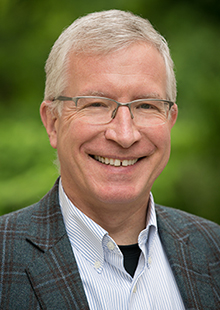
Stephen Latham is a Lecturer in Law at Yale Law School as well as Director of the Yale Interdisciplinary Center for Bioethics, Senior Research Scholar in Political Science and a Lecturer in Management. Prior to joining the Center for Bioethics, Latham taught at Quinnipiac University School of Law, where he was the Director of the Center for Health Law and Policy. Latham has also taught business ethics at the Yale School of Management as well as courses at Northwestern University, University of Chicago, UC Berkley, and Harvard. He has served as the Director of Ethical Standards at the American Medical Association, and as secretary to its Council on Ethical and Judicial Affairs. Latham is a former board member of the American Society for Bioethics and Humanities, from which he received a Distinguished Service Award. He is faculty chair of Yale’s Human Subjects Committee and serves on the Medical Review Board of Connecticut’s Department of Children and Families.
Latham’s publications on health law, professionalism, and bioethics have appeared in numerous journals and law reviews, including JAMA, the New England Journal of Medicine, the Journal of Law, Medicine, and Ethics, the American Journal of Bioethics, the Hastings Center Report, and the Journal of Legal Medicine. Latham holds a Ph.D. in Jurisprudence and Social Policy from the University of California at Berkley, a J.D. from Harvard Law School, and an A.B. in Social Studies from Harvard College.
Full Biography
Mark Mercurio
Professor of Pediatrics; Chief, Neonatal-Perinatal Medicine; Director, Program for Biomedical Ethics, Yale School of Medicine
Dr. Mercurio is Professor of Pediatrics, Chief of Neonatal-Perinatal Medicine, and the Director of the Program for Biomedical Ethics at Yale School of Medicine. He leads the faculty and post-doctoral fellows in Neonatology, overseeing medical care provided in Newborn Intensive Care Units at Yale-New Haven Children's Hospital, Lawrence and Memorial Hospital, Bridgeport Hospital, and Waterbury Hospital. In addition, he is actively involved in the ethics education of Yale medical students, attending physicians, fellows, residents, nurses, and physician associate students. He has more than 25 years of experience as a clinical neonatologist, including the training of fellows and residents in the Newborn ICU, and over 20 years’ experience in clinical ethics consultation in adult and pediatric medicine. Dr. Mercurio has been an invited lecturer nationally and internationally, focusing on analyses of ethical issues in adult and pediatric medicine, primarily pediatrics. He has for many years served as medical faculty for the Fellowships at Auschwitz for the Study of Professional Ethics (FASPE). Published work has appeared in Pediatrics, The Hastings Center Report, Seminars in Perinatology, the Journal of Medicine and Philosophy, The Journal of Perinatology, and others. He has served on the American Academy of Pediatrics Committee on Bioethics, and is co-editor of a textbook of pediatric ethics.
Full Biography
Viveca Morris
Solomon Center Scholar in Animal Law, Ethics & Health; Executive Direrctor of the Law, Ethics & Animals Program
Viveca Morris is the Solomon Center Scholar in Animal Law, Ethics & Health as well as an Associate Research Scholar in Law and the Executive Director of the Law, Ethics & Animals Program at Yale Law School. Morris founded the Law, Ethics & Animals Program in partnership with Faculty Co-Directors Doug Kysar and Jonathan Lovvorn. Her research focuses on the legal, moral, and scientific questions raised by humanity’s treatment of non-human creatures, and on how insights from multiple disciplines, the power of storytelling, and the force of law can together be leveraged to address industrialized abuses of animals, people and the environment. Morris co-hosts and co-produces the Yale University podcast "When We Talk About Animals,” which features in-depth interviews with leading thinkers about animals and what it means to be human.
Full Biography
Fiona Scott Morton
Theodore Nierenberg Professor of Economics, Yale School of Management
Fiona Scott Morton is the Theodore Nierenberg Professor of Economics at Yale School of Management. An expert in competitive strategy, Professor Scott Morton received her undergraduate degree in Economics from Yale and her Ph.D., also in Economics, from MIT. Her research focuses on empirical studies of competition among firms in areas such as pricing, entry, and product differentiation. Her articles are published widely, in journals including the American Economic Review, Journal of Economics and Management Strategy, the RAND Journal of Economics, and the Quarterly Journal of Economics. Professor Scott Morton has taught the core perspective The Competitor, in which she introduces students to the dynamics of competition using tools from economics and integrating techniques from marketing, OB, accounting, and other disciplines. She also regularly teaches Competitive Strategy, a popular elective applying concepts from Industrial Organization to business problems. In 2007, she was chosen by students to receive the Yale SOM Alumni Association Teaching Award, an honor which is given to one professor each year. She is a frequent speaker at academic research seminars and conferences across the United States and Europe. She served as Deputy Assistant Attorney General for Economic Analysis (Chief Economist) at the Antitrust Division of the Department of Justice from May 2011 to December 2012. In that capacity she supervised a staff of Ph.D. economists who provided the economic analysis critical to enforcing competitor law.
Full Biography
Shilpa S. Murthy
Assistant Professor of Surgery, Yale School of Medicine
 Shilpa S. Murthy MD MPH is an Assistant Professor of Surgery at Yale School of Medicine in the Department of Surgery, the Division of Colon and Rectal Surgery, and the VA Connecticut Healthcare System. Her research has focused on the intersection between policy, public health, surgery and how these fields can improve health care delivery for disenfranchised and vulnerable patient populations. She completed her undergraduate degree with high honors in Molecular, Cellular, and Developmental Biology from the University of Michigan, attended medical school at Pennsylvania State University College of Medicine, and completed general surgery residency training at Indiana University. During her residency, she obtained an MPH from the Harvard T.H. Chan School of Public Health and was a research fellow at the Center for the Surgery and Public Health/Brigham and Women’s Hospital where she trained in health services research, global surgery/oncology, and spent time in Rwanda, Africa. Her colorectal fellowship was at the John Goligher Colorectal Unit, in Leeds England, sponsored by the Royal College of Surgeons England. She went on to complete a Surgical Oncology Global Cancer Disparities Fellowship at Memorial Sloan Kettering Cancer Center (MSKCC) where she spent clinical and research time at MSKCC in New York City as well as in Nigeria, Africa. Dr. Murthy also brings experience working with the World Health Organization in Geneva, Switzerland in the Cancer Division where she contributed to the WHO Report on Cancer and was also a Lancet Commissioner for the Lancet Oncology Journal Commissions in Global Cancer Surgery Part I and Part II. Her clinical practice consists of general and colorectal surgery at the West Haven Veterans Affairs Hospital in Connecticut and her interests are in society and medicine, health law and policy, oncology and surgery.
Shilpa S. Murthy MD MPH is an Assistant Professor of Surgery at Yale School of Medicine in the Department of Surgery, the Division of Colon and Rectal Surgery, and the VA Connecticut Healthcare System. Her research has focused on the intersection between policy, public health, surgery and how these fields can improve health care delivery for disenfranchised and vulnerable patient populations. She completed her undergraduate degree with high honors in Molecular, Cellular, and Developmental Biology from the University of Michigan, attended medical school at Pennsylvania State University College of Medicine, and completed general surgery residency training at Indiana University. During her residency, she obtained an MPH from the Harvard T.H. Chan School of Public Health and was a research fellow at the Center for the Surgery and Public Health/Brigham and Women’s Hospital where she trained in health services research, global surgery/oncology, and spent time in Rwanda, Africa. Her colorectal fellowship was at the John Goligher Colorectal Unit, in Leeds England, sponsored by the Royal College of Surgeons England. She went on to complete a Surgical Oncology Global Cancer Disparities Fellowship at Memorial Sloan Kettering Cancer Center (MSKCC) where she spent clinical and research time at MSKCC in New York City as well as in Nigeria, Africa. Dr. Murthy also brings experience working with the World Health Organization in Geneva, Switzerland in the Cancer Division where she contributed to the WHO Report on Cancer and was also a Lancet Commissioner for the Lancet Oncology Journal Commissions in Global Cancer Surgery Part I and Part II. Her clinical practice consists of general and colorectal surgery at the West Haven Veterans Affairs Hospital in Connecticut and her interests are in society and medicine, health law and policy, oncology and surgery.
Douglas G. NeJaime
Anne Urowsky Professor of Law
Douglas NeJaime is Professor of Law at Yale Law School, where he teaches in the areas of family law, legal ethics, law and sexuality, and constitutional law. In Fall 2016, he was the Martin R. Flug Visiting Professor of Law at Yale. Before joining the Yale faculty in 2017, NeJaime was Professor of Law at UCLA School of Law, where he served as Faculty Director of the Williams Institute, a research institute on sexual orientation and gender identity law and public policy. He has also served on the faculties at UC Irvine School of Law and Loyola Law School in Los Angeles, and he was Visiting Professor of Law at Harvard Law School in Spring 2017. NeJaime is the co-author of Cases and Materials on Sexuality, Gender Identity, and the Law (with Carlos Ball, Jane Schacter, and William Rubenstein). His recent scholarship includes “The Nature of Parenthood,” 126 Yale Law Journal 2260 (2017); “Marriage Equality and the New Parenthood,” 129 Harvard Law Review 1185 (2016); “Conscience Wars: Complicity-Based Conscience Claims in Religion and Politics,” 124 Yale Law Journal 2516 (2015), with Reva Siegel; and “Before Marriage: The Unexplored History of Nonmarital Recognition and Its Relationship to Marriage,” 102 California Law Review 87 (2014). NeJaime has twice received the Dukeminier Award, which recognizes the best sexual orientation legal scholarship published in the previous year, and has also been the recipient of UCI Law’s Professor of the Year Award and Loyola Law School’s Excellence in Teaching Award.
Full Biography
Megan L. Ranney
Dean of Yale School of Public Health and C.-E. A. Winslow Professor of Public Health (Health Policy) and Professor of Emergency Medicine

Dr. Megan L. Ranney is the Dean of the Yale School of Public Health, the C.-E. A. Winslow Professor of Public Health, and a Professor of Emergency Medicine at Yale University. Dr. Ranney is the first Dean to lead YSPH since it became a fully independent graduate institution in 2024, with a new strategic vision of linking science and society, making public health foundational to communities everywhere. Dr. Ranney’s career has been driven by her front-row seat to preventable public health crises, from her formative years in the Peace Corps to her 20+ years as a practicing emergency medicine physician. Whether addressing motor vehicle injuries and firearm violence, HIV and COVID-19, or the importance of healthcare access, her first-hand experiences have fueled her commitment to high-quality science and making sure the science is used and understood by communities across the globe. Dr. Ranney's research, which centers on interventions to prevent violence and related behavioral health problems, with a particular focus on the role of social media and digital health, has been published over 200 times, in leading journals including NEJM, JAMA, Nature, Annals of Internal Medicine, and Annals of Emergency Medicine. She has served as principal investigator for numerous grants from NIH, CDC, and foundations, started two non-profits, and received several awards for technology innovation, public health, and research.
Full Biography
Reva Siegel
Nicholas deB. Katzenbach Professor of Law
Professor Reva Siegel is the Nicholas deB. Katzenbach Professor of Law at Yale Law School. Professor Siegel’s writing draws on legal history to explore questions of law and inequality and to analyze how courts interact with representative government and popular movements in interpreting the Constitution. Professor Siegel is a member of the American Philosophical Society, a member of the American Academy of Arts and Sciences, and an honorary fellow of the American Society for Legal History. She serves on the board of Advisors and the Board of Academic Advisors of the American Constitution Society and on the General Council of the International Society of Public Law.
Full Biography
Stacie Sinclair, MPP
Palliative Care Law and Policy GPS Senior Advisor, Associate Director, Policy and Care Transformation at CAPC

In her role as Associate Director, Policy and Care Transformation at the Center to Advance Palliative Care (CAPC), Stacie Sinclair is dedicated to educating federal and state policy makers and key stake holders on the value of palliative care; raising and standardizing the quality of palliative care delivery; and augmenting palliative care's voice through coalitions and strategic partnerships. Ms. Sinclair served as Co-Chair of the Writing Workgroup for the National Consensus Project (NCP) Clinical Practice Guidelines for Quality Palliative Care, 4th edition and managed the efforts of the Serious Illness Quality Alignment Hub, a three-year project funded by the Gordon and Betty Moore Foundation. The latter convened palliative care experts and U.S. health care quality leaders to create requirements and incentives for palliative care access and adherence to standards.
Previously, Ms. Sinclair worked at Econometrica as the Implementation Project Manager for the Medicaid Incentives for Prevention of Chronic Diseases (MIPCD) Technical Support project, a $3.8 million contract with the Centers for Medicare and Medicaid Services (CMS) to test the effectiveness of incentives to promote healthy behavior change among Medicaid beneficiaries. She also provided evaluation support for the Community-Based Care Transitions Program (CCTP). Prior to Econometrica, Ms. Sinclair assisted with policy development and grants and for the Maryland Department of Health and Mental Hygiene. Ms. Sinclair received both her MPP and her BA in Social Work from the University of Maryland, Baltimore County.
Priscilla Smith
Associate Research Scholar in Law and Senior Fellow, Program for the Study of Reproductive Justice, Information Society Project
Priscilla (Cilla) Smith is an Associate Research Scholar in Law and Senior Fellow at the Information Society Project at Yale Law School. Prior to joining the ISP, Smith was an attorney with the Center for Reproductive Rights for 13 years, serving as the U.S. Legal Program Director from 2003-2007, and litigated cases nationwide, including Gonzales v. Carhart, 127 S. Ct. 1610 (2007), and Ferguson v. City of Charleston, 532 U.S. 67 (2001). She conducts research and writes on privacy, reproductive rights and justice, and the information society.
Full Biography
Tom R. Tyler
Macklin Fleming Professor of Law and Professor of Psychology
Tom R. Tyler is the Macklin Fleming Professor of Law and Professor of Psychology at Yale Law School. He is also a professor (by courtesy) at the Yale School of Management. He joined the Yale Law faculty in January 2012 as a professor of law and psychology. He was previously a University Professor at New York University, where he taught in both the psychology department and the law school. Prior to joining NYU in 1997, he taught at the University of California, Berkeley, and at Northwestern University. Tyler’s research explores the role of justice in shaping people’s relationships with groups, organizations, communities, and societies. In particular, he examines the role of judgments about the justice or injustice of group procedures in shaping legitimacy, compliance, and cooperation. He is the author of several books, including Why People Cooperate (2011); Legitimacy and Criminal Justice (2007); Why People Obey the Law (2006); Trust in the Law (2002); and Cooperation in Groups (2000). Professor Tyler was awarded the Harry Kalven prize for “paradigm shifting scholarship in the study of law and society” by the Law and Society Association in 2000, and in 2012, he was honored by the International Society for Justice Research with its Lifetime Achievement Award for innovative research on social justice. He holds a B.A. in psychology from Columbia and an M.A. and Ph.D. in social psychology from the University of California at Los Angeles.
Full Biography
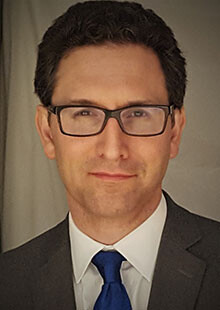


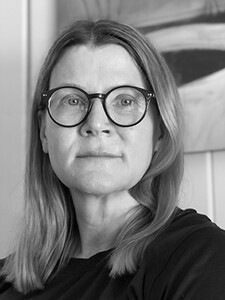
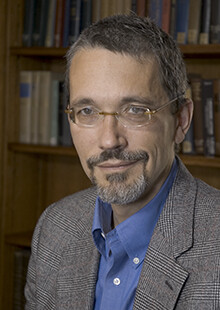

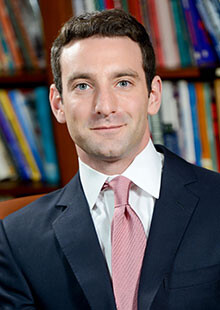


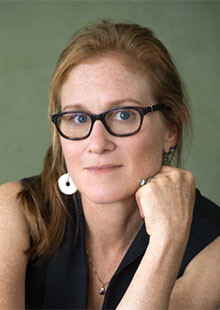


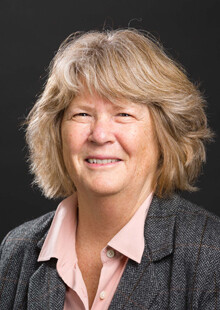



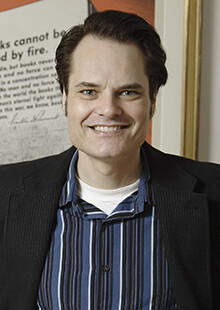
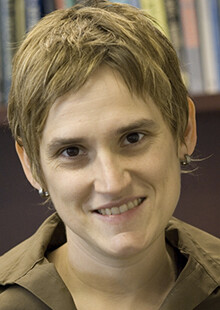
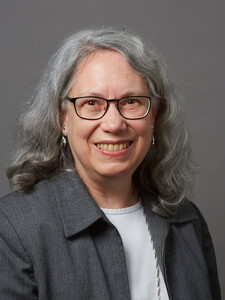

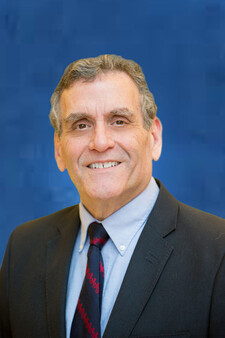
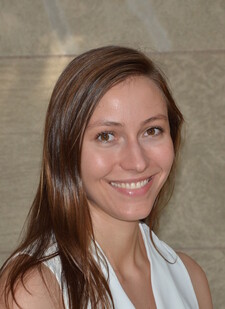

 Shilpa S. Murthy MD MPH is an Assistant Professor of Surgery at Yale School of Medicine in the Department of Surgery, the Division of Colon and Rectal Surgery, and the VA Connecticut Healthcare System. Her research has focused on the intersection between policy, public health, surgery and how these fields can improve health care delivery for disenfranchised and vulnerable patient populations. She completed her undergraduate degree with high honors in Molecular, Cellular, and Developmental Biology from the University of Michigan, attended medical school at Pennsylvania State University College of Medicine, and completed general surgery residency training at Indiana University. During her residency, she obtained an MPH from the Harvard T.H. Chan School of Public Health and was a research fellow at the Center for the Surgery and Public Health/Brigham and Women’s Hospital where she trained in health services research, global surgery/oncology, and spent time in Rwanda, Africa. Her colorectal fellowship was at the John Goligher Colorectal Unit, in Leeds England, sponsored by the Royal College of Surgeons England. She went on to complete a Surgical Oncology Global Cancer Disparities Fellowship at Memorial Sloan Kettering Cancer Center (MSKCC) where she spent clinical and research time at MSKCC in New York City as well as in Nigeria, Africa. Dr. Murthy also brings experience working with the World Health Organization in Geneva, Switzerland in the Cancer Division where she contributed to the WHO Report on Cancer and was also a Lancet Commissioner for the Lancet Oncology Journal Commissions in Global Cancer Surgery Part I and Part II. Her clinical practice consists of general and colorectal surgery at the West Haven Veterans Affairs Hospital in Connecticut and her interests are in society and medicine, health law and policy, oncology and surgery.
Shilpa S. Murthy MD MPH is an Assistant Professor of Surgery at Yale School of Medicine in the Department of Surgery, the Division of Colon and Rectal Surgery, and the VA Connecticut Healthcare System. Her research has focused on the intersection between policy, public health, surgery and how these fields can improve health care delivery for disenfranchised and vulnerable patient populations. She completed her undergraduate degree with high honors in Molecular, Cellular, and Developmental Biology from the University of Michigan, attended medical school at Pennsylvania State University College of Medicine, and completed general surgery residency training at Indiana University. During her residency, she obtained an MPH from the Harvard T.H. Chan School of Public Health and was a research fellow at the Center for the Surgery and Public Health/Brigham and Women’s Hospital where she trained in health services research, global surgery/oncology, and spent time in Rwanda, Africa. Her colorectal fellowship was at the John Goligher Colorectal Unit, in Leeds England, sponsored by the Royal College of Surgeons England. She went on to complete a Surgical Oncology Global Cancer Disparities Fellowship at Memorial Sloan Kettering Cancer Center (MSKCC) where she spent clinical and research time at MSKCC in New York City as well as in Nigeria, Africa. Dr. Murthy also brings experience working with the World Health Organization in Geneva, Switzerland in the Cancer Division where she contributed to the WHO Report on Cancer and was also a Lancet Commissioner for the Lancet Oncology Journal Commissions in Global Cancer Surgery Part I and Part II. Her clinical practice consists of general and colorectal surgery at the West Haven Veterans Affairs Hospital in Connecticut and her interests are in society and medicine, health law and policy, oncology and surgery.

